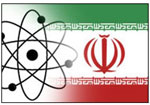 Washington Post: When two days of talks between Iran and major powers ended here Tuesday, with few signs of progress except an agreement to meet again next month in Istanbul, the dueling news conferences by both sides laid bare the difficulties ahead.
Washington Post: When two days of talks between Iran and major powers ended here Tuesday, with few signs of progress except an agreement to meet again next month in Istanbul, the dueling news conferences by both sides laid bare the difficulties ahead.
The Washington Post
By Glenn Kessler
Washington Post Staff Writer
Wednesday, December 8, 2010; A09
 GENEVA – When two days of talks between Iran and major powers ended here Tuesday, with few signs of progress except an agreement to meet again next month in Istanbul, the dueling news conferences by both sides laid bare the difficulties ahead.
GENEVA – When two days of talks between Iran and major powers ended here Tuesday, with few signs of progress except an agreement to meet again next month in Istanbul, the dueling news conferences by both sides laid bare the difficulties ahead.
There was no public agreement on what was discussed in the past – or even what will be covered in the future.
European Union foreign policy chief Catherine Ashton, representing the major powers, spoke for only a minute and took no questions. She said that the talks this week were “detailed, substantive” and that the discussions in January will cover “practical ideas and ways of cooperating toward a resolution of our core concerns about the nuclear issue.”
By contrast, Saeed Jalili, Iran’s envoy to the talks, spoke to reporters for 80 minutes, standing before a photograph of an Iranian nuclear scientist who was recently killed. He began with a lengthy description of why the world needs Iran’s capabilities to prosper. “Today, more than ever, Iran is powerful,” he said of a country under vast international sanctions. “It is in the best economic, political, regional and international shape.”
Jalili told reporters that Ashton’s comments were “disrespectful” and that the two sides had reached no agreement on what should be discussed at the next round of talks, but he did note a desire to reach “common ground.” He added: “I am telling you clearly and openly that halting uranium enrichment will not be discussed at the Istanbul meeting”- even though that is the key goal of major-power diplomacy. He suggested that the main focus of the Istanbul talks will be on the nuclear weapons stockpiles of the other countries at the table.
In every respect, the outcome of the latest round of discussions with Iran appears less substantive than the talks 14 months ago. Then, officials announced a series of agreements, including a plan to meet again within a month. That meeting never happened, and one of the key agreements quickly fell apart.
“Our expectations for these talks were low, and I can’t say they were exceeded,” said a senior U.S. administration official, briefing reporters on the condition of anonymity. The talks were “difficult and candid,” with a fair amount of “Iranian venting and posturing,” the official said.
Iranian state media reported that the nuclear program was not discussed, but officials from the major powers – which included the United States, Russia, China, Britain, France and Germany – said that Iran’s nuclear program took up 75 percent of the conversation. In particular, Iran on Monday provided its account of how it is complying with international obligations – and then on Tuesday morning the other side tried to demonstrate how the nation is failing that test, officials said.
But U.S. and other officials are hoping that despite Jalili’s bravado, Iran is slowly coming to realize that its tactics are leading it to greater isolation and economic woe.
Assuming that the next meeting will take place as scheduled, the challenge for the United States and its partners will be to turn the nascent process into something more substantial.
The U.S. official said the major powers hope that the new talks will focus on steps Iran can take to build confidence, such as accepting a revised version of an earlier agreement on a medical research reactor or agreeing to abide by an international accord to give notice of any plans to build nuclear-related facilities.
The research reactor deal was the key achievement of the 2009 talks, but many of its elements – such as Iran giving up a substantial portion of its enriched uranium – have become outdated, as Iran has forged ahead with its uranium-enrichment program. So it might require substantial renegotiation.
In an ominous development, Iranian President Mahmoud Ahmadinejad appeared to set high standards for success in the Istanbul talks. He said the major powers need to lift four sets of sanctions imposed by the U.N. Security Council – a move none would ever consider until the end of a long process.
“We have done the easy bit,” a senior European Union official said in an interview, speaking on the condition of anonymity. “There is no guarantee the next bit will work.”
Yet he pointed out that the prospect of another meeting is more solid than it was in the last round of talks. Then, Jalili never agreed to a meeting; he simply agreed not to dispute the West’s announcement of a follow-up meeting. It was essentially a bit of theater for the media, but the prospects for that meeting were tenuous.
This time, Jalili also announced the meeting. As the E.U. official put it: “A meeting in itself is not a success. But in order to have successes, you have to have meetings.”


